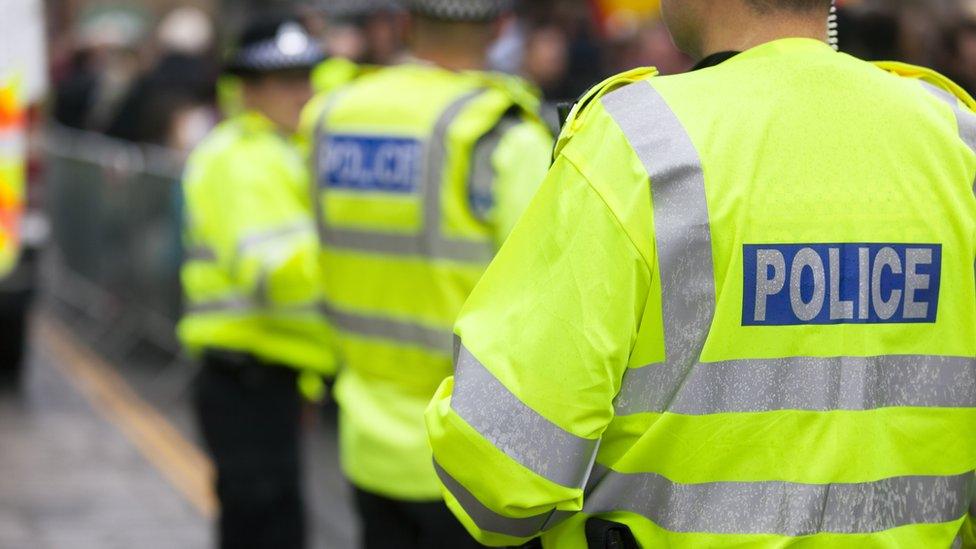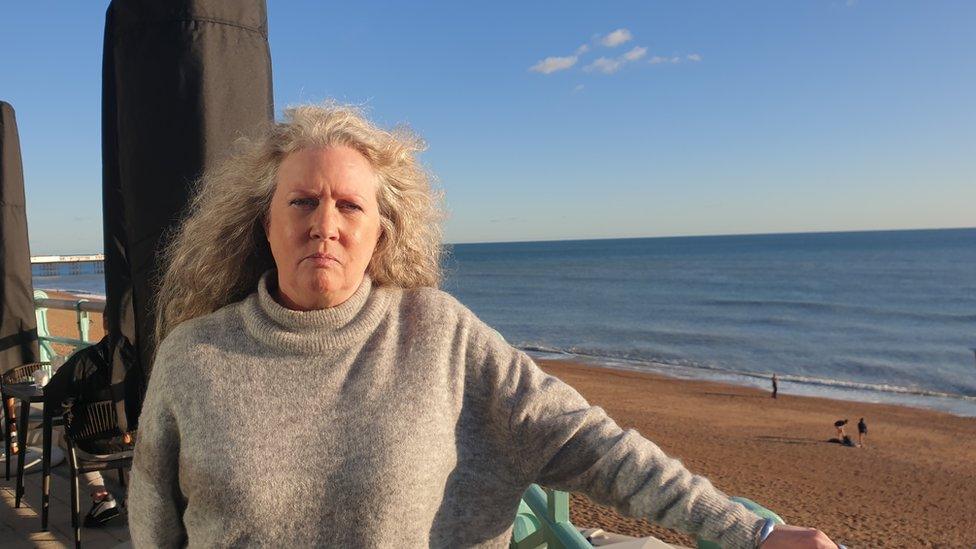Police vetting: Thousands of staff members not properly checked
- Published

More than 2,500 police officers and staff are working without the appropriate level of vetting, a BBC investigation has found.
Figures show more than a quarter of UK forces have not checked all personnel to meet national guidelines introduced in 2006.
The murder of Sarah Everard has shone a spotlight on police vetting procedures.
The National Police Chiefs Council said it was the responsibility of each force to ensure checks were up to date.
Vetting involves a series of background checks on people wanting to join the police - looking at everything from past convictions, behaviour of family and friends, or financial problems that may leave an applicant open to corruption.
The College of Policing introduced the national guidelines to ensure all forces in England, Wales and Northern Ireland were checking new recruits in the same way.
Then in 2019 the police watchdog, Her Majesty's Inspectorate for Constabulary, Fire and Rescue Services (HMICFRS), gave all forces a deadline of July 2020 to retrospectively vet all their officers and staff to these 2006 guidelines, no matter how long they have been serving.
But figures obtained by the BBC's File on 4 programme - through a series of Freedom of Information requests - show more than a quarter of police forces have still not met this deadline.
Missed opportunities
File on 4 has also investigated a number of cases where "red flags" have failed to be acted on by police forces.
Nicola Brookes, who waived her right to anonymity, was groomed for sex by a former inspector at Sussex Police, Tony Lumb.
He targeted Ms Brookes, a vulnerable stalking victim, in 2015, under the pretence of helping her with her case. Ms Brookes said he visited her regularly while he was on duty and they once had sex.

"He was literally grooming me to be dependent on him. All the way through he'd been telling me that it was OK for him to behave like this with me, because I wasn't his crime victim so it was OK," she said.
Eventually she realised what he had been doing was wrong, and reported him to the police.
He was sacked for gross misconduct in 2020, following an investigation by the Independent Police Complaints Commission (IPCC), in which it emerged he had had sex with three other women while on duty.
The IPCC report revealed Lumb had been previously reported to Sussex Police in 2012 but the allegation wasn't investigated properly by the force's professional standards department.
"It was shocking," Ms Brookes said. "He could have been stopped in 2012 and he would never have been able to get to me."
During his 27 years as an officer, under current rules, Lumb may only have been vetted twice. Sussex Police refused to provide File on 4 with any details of his checks, but said in a statement that as a force they fully comply with the vetting code of practice.
They said they could not tell the BBC why the 2012 allegation was not fully investigated.
'Deeply disappointing'
Of the 47 forces, 41 responded to the FoI request revealing that 2,515 officers and staff were still not up to date with vetting checks - about 1.5% of all personnel. The figures do not include the Metropolitan Police, which said it could not provide the data in time.
However, a similar FoI request by File on 4 in May this year found more than 650 Met Police officers and staff had not been revetted to the 2006 guidelines.
Police Scotland is not bound by College of Policing guidance.
HMICFRS says it is "reviewing whether previous recommendations on vetting have been implemented".
But the former Inspector of Constabulary, Zoe Billingham, called the figures "deeply disappointing".
She told File on 4: "We know that policing attracts predators, a very tiny number, so of all of the professions and all public services, policing really does have to have the state of the art tightest vetting processes and procedures in place.
"It [retrospective vetting] needs to be completely nailed down now so that all officers, all staff, and volunteers working in policing have the right checks and safeguards in place."
Chief Constable Debra Tedds, who leads on vetting for the National Police Chiefs Council said: "It is the responsibility of each force to ensure that they have got the required levels as per the guidance. And I do know that there are a small number of forces that do still have outstanding action plans that they need to work through."
She added: "The majority of officers do join the service to do the right thing and support members of the public. My general view is vetting is robust."
You can listen to File on 4: Who's policing the police? on Radio 4 on Tuesday 16 November at 20:00 GMT, and then afterwards on BBC Sounds.